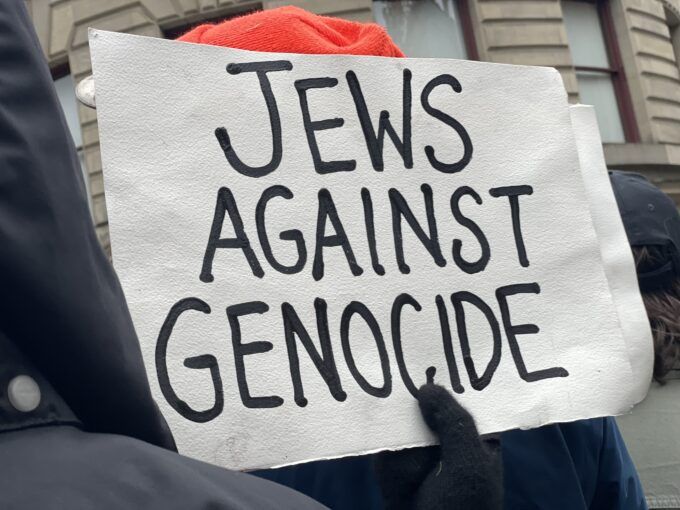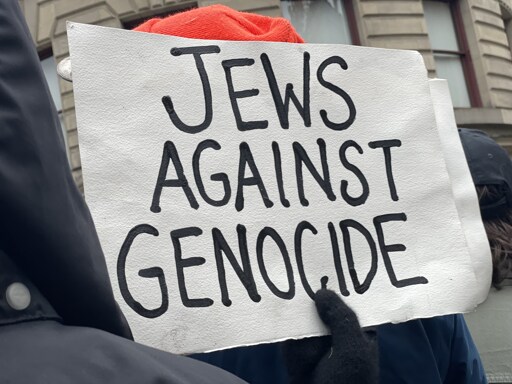
Photograph by Nathaniel St. Clair
And we will all be called as witnesses, each and every one, to stand before the eyes of God, and speak what was done.
– Jerusalem, Paul Simon
“Now you see what we’re up against!” said my mother when hearing that Robert F. Kennedy’s assassin had an Arab name. And thus, someone who had shown no special interest in Israel, or spoke a word of Yiddish in the house despite being fluent, or said anything about our being Jewish, revealed the depth of her identity as a Jewish victim.
It runs deep, and it’s not a stretch to say at any point over the past two thousand years, “They’re out to get us.” My identity includes suffering antisemitic rants from a store owner when I was in high school, having an overt antisemite for a college roommate, being accused when I quit the high school football team of “Jewing out,” seeing the ad in the college paper by a gentile fraternity pressured to admit Jews inviting people to show up for a rush for $1.98 (such a bargain!), and having a dream in which I had a license plate on my butt that simply said, “Jew.”
Relatively mild but persistent echoes of the historic horrors.
I’ve had a million fantasies about tossing Nazis into a pit of hot oil after reminding each and every one why they were about to be boiled alive.
Good, clean, self-protecting revenge.
But in every oppressed group may dwell the fantasy of being the oppressor. And so, one quiet August night at my kosher camp, a group of counselors marched into the cabin of young, sleeping campers, took a position around each bed and screamed threats in a heavy German accent before we stomped out in giddy lockstep.
By abusing the helpless we were revisiting the trauma—but experiencing the dirty thrill of absolute power. Lacing up our Nazi boots. Feeling the whip hand.
Good, clean, self-hating fun disguised as a spoof of Nazis.
Hurt people hurt people. And we have been hurt. We deeply feel the historic desperation that motivates the dated admonition to “clean your plate!”
But attached to that collective sense of assault is a collective pride that while we will kill to protect ourselves, we are special: call it kosher—selective and humane.
Which makes marching against Israel challenging, to say the least.
I have been uneasy with the anti-Israeli sentiment in the various progressive groups I support and with which I march today, sensing a whiff of antisemitism and quietly stiffening when I hear, “From the river to the sea, Palestine will be free.” (For its real or imagined “cleansing” implications).
More echoes.
I had also resisted the seemingly casual accusation of “genocide,” a term created, after all, by a Jewish lawyer whose loved ones were eviscerated in the Holocaust.
But Israel continues to act with the nasty arrogance that accompanies absolute power—a brutal, real world enactment of what we teenagers toyed with that night at camp. Carpet bombing and the ongoing denial of food and medical supplies indisputably meet the internationally recognized meaning of “genocide.” It is impossible to justify Israel’s actions with a straight face and a clear conscience.
Israel is treating the Palestinians as stateless, invasive vermin; conjuring fantasies of a deep cleansing—a virtual evaporation that goes well beyond a spasm of temporary, justifiable rage over October 7th.
It is systemic, deliberate, sadistic. It is as the Nazis treated the Jews.
The jackboot fits.
+++
And so, I march and wonder. If there were an updated Nuremberg trial, and we were all called as witnesses, each and every one, to speak what was done:
What would you say?
What have you done?
The post Notes From a March appeared first on CounterPunch.org.
From CounterPunch.org via this RSS feed


